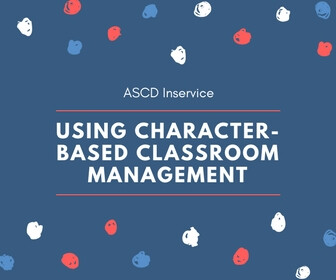If we agree that the primary purpose of a grade is to accurately describe a student’s level of academic performance, and if we want to remain dedicated to ensuring that our schools are equitable, there are two critically important questions that should inform our decisions about whether, and how, we grade while schools are closed this spring during the novel coronavirus outbreak:
1. How likely is it that our school is able to provide the quality of instruction and supports appropriate for our students to sufficiently learn the content?
2. How likely is it that a student’s performance, and our evaluation of that performance, will be an accurate reflection of what they have learned?
Before schools were closed, we had a reasonable degree of confidence that we could satisfy each of these questions. Now, not so much.
In response to the first question, even among our most dedicated teachers and principals, most have received little, if any, preparation to provide remote or distance learning instruction, a specialized pedagogical field. Educators nationwide are struggling, especially, with remotely serving English learners, students from lower-income families, and students with special needs, as well as providing differentiated academic supports to the wider student population.
Everyone is doing their best under these incredibly challenging circumstances, but the quality of teaching and learning is not only compromised by teachers’ lack of remote instruction skills, but also by students’ home environments, over which they have no control. Lack of internet or computer access, limited bandwidth and speed, and limited physical space to focus on academics have become insurmountable obstacles to students accessing instruction. Added to this is the stress and anxiety that educators are experiencing, which is understandably impacting the quality of instruction they provide and their availability for students.
In response to the second question, we know that stress and anxiety hampers cognition. The stress and even trauma students are experiencing because of the pandemic — families’ economic hardships, social isolation, and illnesses or deaths of loved ones — cannot be understated, and the impact is even more severe among lower-income families with fewer safety nets and resources. While schools have always provided some measure of mental health services, students — particularly those who need essential supports the most — are now unable to access them.
Clearly, if we were to give letter grades, those grades would be based on faulty evidence, reflect the resources (or lack of resources) of students, and have little relationship to the grades we awarded for our courses prior to the pandemic.
For this reason, we must recognize that there is no possibility that a grade earned during this period of the pandemic will reflect a student’s level of course mastery, and that standard grading (A-F or percentages) will inequitably reward students with more resources and supports and punish those with less.
Schools and districts should therefore resist giving students grades if possible. But if they do decide to award grades, they should be limited to either “Pass” or “Incomplete.” This will reduce pressure on students when they may be most vulnerable, promote equity, and for those students who are unable to meet minimum requirements, allow them the opportunity to meet those requirements when schools are back underway.
While we may feel pressure from families to assign letter grades, we have to help them understand that all institutions — colleges included — know that this is a unique and challenging time, and students will not be at a competitive disadvantage by receiving a “Pass” for second semester. In fact, doing so is in the best interests of our students, and will best preserve the integrity of the grades that teachers and schools have given prior to this semester.
For more details about implementing a Pass/Incomplete grading policy, see Feldman’s upcoming article “To Grade or Not to Grade?” in the special coronavirus-related Educational Leadership report that will be released on April 15 at www.ascd.org/EL.
About the author
Joe Feldman (joe@crescendoedgroup.org) has worked in education for more than 20 years as a teacher, principal, and district administrator, and is the founder and CEO of Crescendo Education Group and the Equitable Grading Project. He is the author of Grading for Equity: What It Is, Why It Matters, and How It Can Transform Schools and Classrooms (Corwin, 2018). Follow him on Twitter @joecfeldman.





